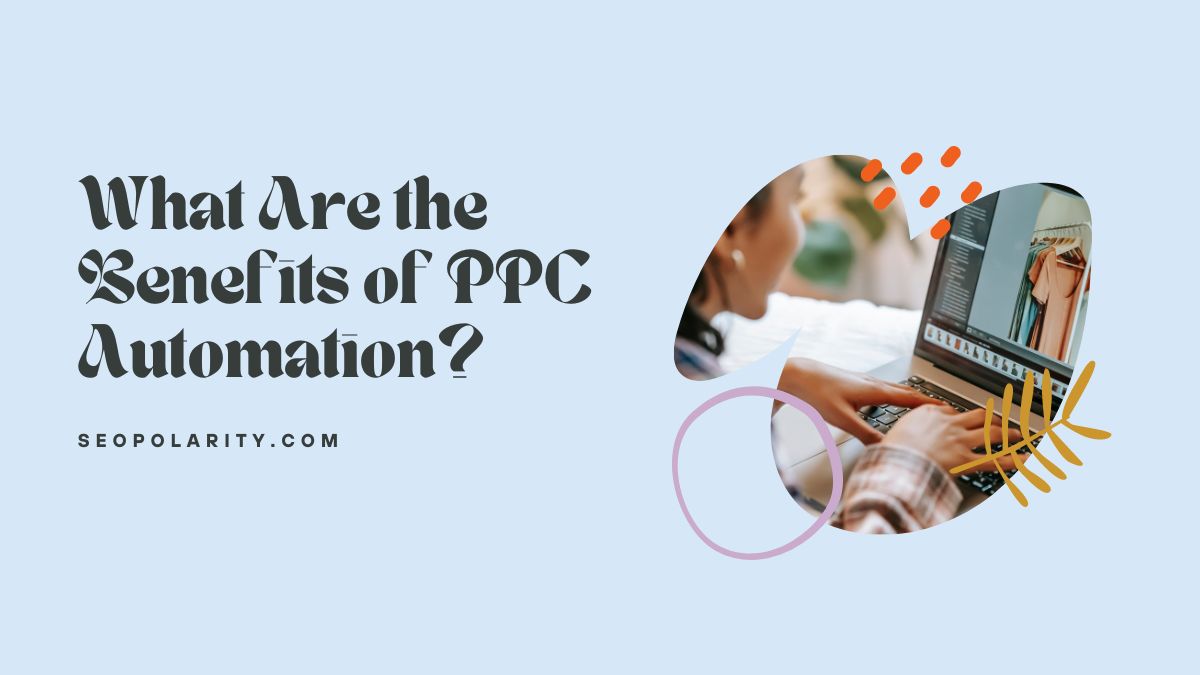
Pay-per-click (PPC) advertising is a powerful tool that can help businesses reach their target audience and drive conversions. However, managing PPC campaigns can be time-consuming and complex, especially as campaigns become larger and more complex. This is where PPC automation comes in. PPC automation refers to the use of software and tools to automate various aspects of PPC campaign management. In this blog post, we’ll take a closer look at the benefits of PPC automation.
1. Increased Efficiency
PPC automation has revolutionized the way businesses conduct their digital advertising campaigns. One of the key benefits of using PPC automation is increased efficiency in managing routine tasks. By automating tasks such as bid management and keyword research, advertisers can save time and resources, allowing them to focus on other aspects of their campaign.
Bid management is a crucial part of any PPC campaign. With automation, bids are automatically adjusted based on various factors like ad position, CPC, and conversion rates. This ensures that advertisers are getting the most out of their budget while maintaining optimal ad placement. Automated bidding also allows for real-time adjustments to be made based on changes in market conditions or competitor activity.
Keyword research is another task that can benefit from automation. With automated systems in place, keywords can be analyzed more efficiently than manual methods would allow.
2. Improved Accuracy
PPC automation is a game-changer when it comes to improving the accuracy of campaign management. By utilizing automated tools, advertisers can eliminate the potential for human error, ensuring that campaigns run smoothly and efficiently. These tools also enable advertisers to optimize their ad spend by analyzing data in real time, making sure that each click counts.
One of the main benefits of PPC automation is that it allows advertisers to set up rules and triggers for specific actions. This ensures that campaigns are always running optimally, without requiring constant manual intervention. For example, an advertiser could set up automated rules to increase or decrease bids based on performance metrics like conversion rates or cost-per-click (CPC). This kind of automation not only saves time but also improves accuracy by taking into account data-driven insights.
Another key advantage of PPC automation is its ability to improve targeting capabilities.
3. Cost Savings
Cost savings is a critical aspect of business operations, and the use of automation technology can come in handy. One area where automation can save businesses money is in Pay-Per-Click (PPC) advertising. With PPC automation, businesses can automate their bid management process and avoid overbidding on keywords.
Overbidding on keywords can be detrimental to any business’s finances, especially for small businesses with tight budgets. By automating their PPC bid management process, businesses can set maximum bids for specific keywords, ensuring that they don’t overspend when bidding on ad placements. This approach not only saves money but also ensures that the ads are placed strategically to reach the target audience.
The use of automation technology in PPC advertising has other benefits beyond cost savings. By automating repetitive tasks such as keyword research and ad copy creation, marketers get more time to focus on strategy development and analysis.
4. Better Performance
Pay-per-click (PPC) advertising has become an indispensable tool for businesses looking to reach their target audience. While PPC campaigns can be effective, they require a lot of time and resources to manage effectively. This is where PPC automation comes into play. By automating tasks like ad testing and optimization, businesses can continue to improve their campaign performance without having to spend countless hours managing them manually.
One of the biggest benefits of using PPC automation is that it can lead to better campaign performance. With automated bidding strategies and ad testing, advertisers can quickly identify which ads are performing well and make necessary adjustments in real time. This ensures that your budget is being spent on the most effective ads possible, leading to increased clicks, conversions, and ultimately a higher return on investment.
Another benefit of PPC automation is that it frees up valuable time for marketers to focus on more strategic initiatives.
5. Scalability
PPC automation is revolutionizing digital marketing by streamlining the process of managing PPC campaigns. With the rise of machine learning and AI technologies, businesses can now leverage automation to help scale their PPC campaigns more easily. This means that as campaigns grow larger and more complex, automation can help businesses eliminate tedious tasks, reduce errors, save time, and ultimately achieve better results.
One of the key benefits of using PPC automation is that it enables advertisers to manage their campaigns more efficiently. By automating certain tasks such as bid adjustments, ad scheduling, and budget allocation, businesses can focus on strategy development rather than mundane tasks like manual bid adjustments. Additionally, automation helps ensure consistency across all aspects of a campaign which reduces the chance of errors.
Another benefit is that with PPC automation businesses can make data-driven decisions that are based on insights gleaned from large datasets.
Conclusion
PPC automation can offer significant benefits to businesses of all sizes. By increasing efficiency, improving accuracy, saving costs, improving performance, and enabling scalability, automation can help businesses achieve their PPC goals more effectively and with less time and effort. However, it’s important to remember that automation is not a replacement for human oversight and strategic thinking. Successful PPC campaigns still require a deep understanding of target audiences, effective ad creativity, and ongoing optimization to achieve the best possible results.